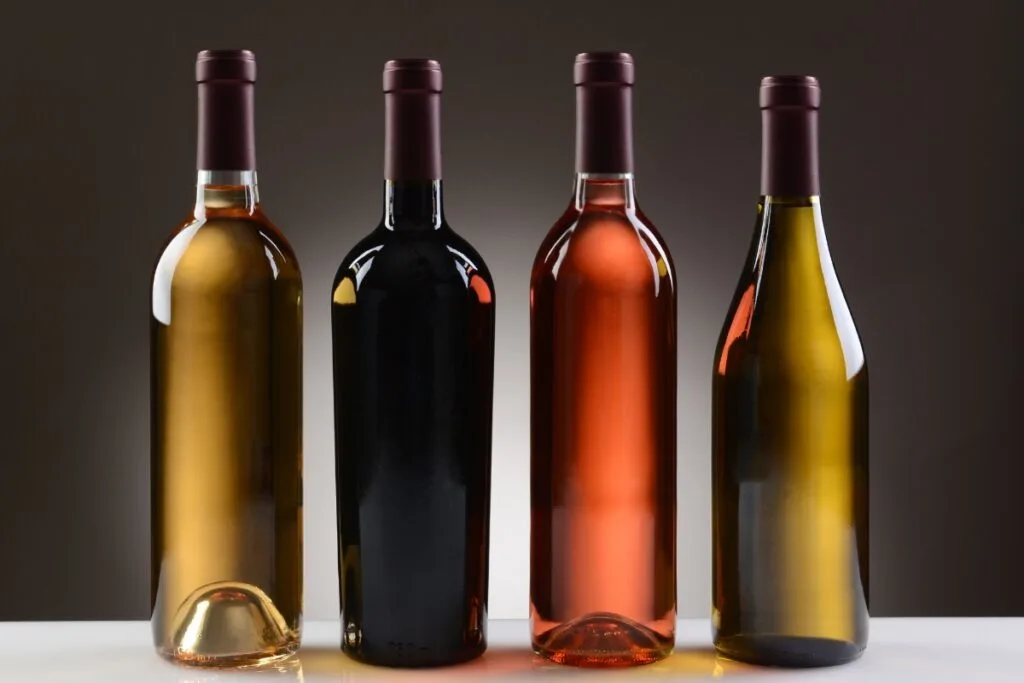As an Amazon Associate, I earn from qualifying purchases with no additional costs for you.
We’ve all been there – you’re in a fine dining establishment with a wine list as long as a novel, trying to decipher wines in multiple languages (French, Italian, Germany, Spanish…the list goes on) with different labeling terms, and it can be a bit…overwhelming.
Enter the sommelier (aka ‘somm’), a wine professional tasked with walking you through the options and helping you narrow down the choices to something you’re willing to bet the bottle price – sometimes hundreds of dollars – that you’re going to enjoy.
You go through the whole routine – the somm brings out the bottle, shows you the label, opens it with a flourish, and pours a sample. You’re prepared to be wowed…so what happens if the wine you’ve chosen doesn’t quite do it for you?

TIP: If you want to check out the best refrigerator for wine storage, I recommend trying out the Avation (18 bottles) compressor refrigerator with Wi-fi smart app control cooling system. You can find this refrigerator by clicking here (Amazon link).
Why are you Offered a Sample of Wine to Taste?
A somm’s main job is to help your party select a bottle of wine that you’ll enjoy. They’ll often ask questions about what you drink at home, what price point you are comfortable with, and what entrée you’re thinking about ordering.
Try to answer as honestly as possible, and don’t worry about trying to come across as a high-brow wine connoisseur if you’re not – help them help you, so to speak.
Based on your answers, the somm will select a wine (maybe a couple) that they think you’ll enjoy and give you a brief description. From here, you make your selection and they’ll bring out the bottle to sample.
Strictly speaking, the sample the somm pours is meant to be tested for wine faults, not so much wine preference. One time it is always appropriate to reject a bottle after the obligatory sample is if the bottle is faulty.
There are a number of faults that can occur in wine, and it is important to be familiar with them if considering spending big bucks on a bottle.
“Corked” wine, also known as “cork taint,” is the most common flaw in a recently opened bottle. If the wine sample smells musty or like wet newspaper, chances are the wine is corked.
Cork taint is caused by a chemical called 2,4,6-trichloroanisole, or TCA for short, and is something that occurs in wines with a natural cork closure.
A slight amount of TCA can mute the fruit aromas and flavors in a wine; at its worst, it renders the bottle undrinkable.
Wines that smell vinegary are another possible fault, as are those that have become oxidized. These faults will be less common at a restaurant with high-end wine storage systems in place.
If something about the sample seems off but you can’t quite put a finger on it, feel free to ask the somm to smell the wine – this is what they’re trained for.
By doing so, however, you are allowing them to steer the conversation – if they say the bottle is sound, you may be that much more obligated to accept it.
Is it appropriate to tell your somm you didn’t like it? Will feedback to the somm help him/her better fit you with wine more to your liking? A good somm will ask you if you’re enjoying the wine and take negative feedback as constructive rather than destructive.
TIP: Does unopened wine go bad, and what should be done to prevent this from happening? This article has all the answers. Is there a difference between expensive and cheap wines? Find out here.
After all, they’re hoping to sell you a second bottle of something, so the feedback will help them make another selection for you. Try to be as specific as possible as to why you didn’t enjoy the wine to help guide the somm in a better direction.
Upon hearing that you didn’t enjoy a wine that they specifically recommended, many somms will try to make it right with a different bottle, a glass or something, or a discount on the bottle.
For a complete list of wine products and accessories I really love, check out this page. You’ll find my recommendations for wine refrigerators, wine decanters, and wine aerators, along with the best place to buy wine online.
Recommendation box: Everything you need to enjoy your wine as much as possible. All recommended products are personally tested and regularly used by experts from this website (Amazon links):
> Ivation Wine Cooler – Energy-efficient wine cooler for 18 bottles with Wi-fi smart app control cooling system.
> Wine Rack – Beautiful, elegant wood rack for up to 7 bottles and the choice of vertical or horizontal storage.
> Durand Wine Opener – Classic vintage wine opener (we like all these classic staff).
> YouYah Iceberg Wine Decanter – The most beautiful and handy wine decanter we personally use.
> Bormioli Rocco Wine Glasses – A set of eight elegant and traditional wine glasses made in Italy.
> Vintorio Wine Aerator – Simple but really useful wine aerator for a reasonable price.
> The Original Vacu Vin Wine Saver – The best wine saver on the market in a package with two vacuum stoppers and two wine servers.
And if you want to become a true connoisseur of wine, we recommend reading the book Wine Folly: The Essential Guide to Wine (Amazon link), where you will find all the information you need about winemaking, wine varieties, flavors, and much more.
What if You Don’t Like the Bottle of Wine?

Is it ok to return a bottle you ordered? This is dicey. Of course, if the bottle is faulty, sending the bottle back is completely appropriate.
However, if it is simply a question of personal preference, many restaurants will not accept a returned bottle. After all, the somm opened a bottle of wine that would have otherwise remained undisturbed on the shelf.
Opened bottles have much shorter shelf lives, and now the restaurant has to figure out a way to use this one. Some restaurants will make that bottle a by-the-glass special for the evening or use it for staff training.
Others, however, will expect you to keep it and pay for it. It is always best to know the restaurant’s policy before committing to a pricey bottle.
If a somm recommended the bottle and you find it is not to your liking, the restaurant may be more willing to take it back. Many somms feel that it is their responsibility to find a bottle to your liking, and if they have misguided you, they feel accountable and want to make it right.
Generally speaking, it can be considered poor manners to return a bottle due to preference. A lot of this will depend on your relationship with the somm and how eager they are to please, as well as the caliber of the dining establishment and the type of wine program.
TIP: Should wine glasses be chilled or not? Find out the facts here. Have you ever wondered if wine glasses should have long stems or not? Read this article to find out.
If you ordered the bottle without the assistance of a sommelier, you really are duty-bound to take it. Think of it this way – when you order an entrée from the menu, you’re betting that it is something you’ll enjoy.
If it ends up not being your favorite, you wouldn’t send it back – unless it was flawed (burnt, undercooked, etc.). The same principle applies to the wine list.
Will you still be charged if you don’t care for the bottle you ordered?
As described above, this really depends on the restaurant’s policies. They may be able to replace the bottle with something different, or you may be obligated to pay for the original bottle. If you are declining the bottle due to a wine fault, the restaurant should replace it at no charge.
Of course, if you drink the bottle and don’t bring up your displeasure until afterward, you are responsible for paying. Be sure to keep an open line of communication with the wine professional at the restaurant right from the get-go!
If you don’t like the wine sample, can you request to sample another?
Restaurants with a robust by the glass program may be more willing to allow multiple samples, assuming the samples are from bottles that were already opened.
More and more fine dining restaurants are incorporating Coravin systems into their wine programs. These devices allow a wine sample to be poured without ever removing the cork.
An inert gas then takes the place of the displaced wine, preventing oxidation and protecting the wine left in the bottle. If this is the case, the somm may be able to offer tastes a bit more liberally.
Are Wine Samples Charged to your Bill?

In most instances, the sample is from a bottle you’ve already agreed to purchase, so the sample is included in that cost. The somm or server should be upfront if there is going to be a charge for additional tastes. Don’t be afraid to ask and confirm if the policy is unclear!
Are You Stuck with the Glass of Wine You Ordered?
By the glass can often be more flexible than bottle purchases. Typically, when a restaurant offers wine by the glass, they only have to sell one glass to cover the wholesale price of the bottle (an example of the notorious markup on wine in a restaurant setting). Any additional glasses sold are pure profit.
So, if this was glass from a bottle that was already open, the somm may be able to swap it out without it costing the restaurant anything.
TIP: A suitable wine glass is the basis for enjoying well-being while drinking your favorite wine variety. Here are our favorite ones (Amazon link):
- Bormioli Rocco Crystal Wine Glasses: A set of eight elegant and traditional wine glasses made in Italy for a reasonable price.
- Riedel VINUM Wine Glasses: Luxury set of two wine glasses suitable for any occasion. We just love them!
- Schott Zwiesel Tritan Crystal Glasses: If you like unusual alternatives, a set of six stemless glasses made of crystal glass.
Pro TIP: ask if there are any open bottles that they’re trying to push and empty by close that evening – you may be able to score a deal.
Five Wine Ordering Etiquette Tips
- Don’t chug your sample. Often a smell is sufficient to tell whether or not the wine is faulty. Many hosts may choose to wait to taste until the entire table has been served and a toast has been offered (especially true for special occasions).
- You can smell the cork if you so choose but rely on a sniff of the wine in the glass to help reach a final verdict. Also, while swirling the glass wine can help a full glass of wine release the aromatics, it can also mask some of the telltale aromas of cork taint. Save the swirling until full glasses have been poured.
- Ask questions and learn from the somm – how often do you have a wine professional’s undivided attention? That said, don’t keep the somm from attending to their other guests.
- Be upfront with the somm about how much you are comfortable spending. A good wine professional will not push you to spend more but instead help find something delicious in your price range.
- Most restaurants are fine with you taking an unfinished wine home; the somm will usually ask if you’d like the bottle recorked. Don’t feel pressure to finish a bottle if you’re not up for it.
TIP: Should you tip the somm or server at a wine-tasting event? What is the correct etiquette? Find out in this helpful guide. Speaking of etiquette, should you sip or spit wine when you are tasting the wine? Read this complete guide to learn the correct wine-tasting etiquette.
Four things you should avoid doing: regarding wine you don’t like but ordered
- Don’t keep it to yourself. Even if you end up keeping the bottle, if a somm helped guide you to ordering a particular wine, they should know if it didn’t meet expectations and why – it will help them grow professionally, and help you make a different selection in the future.
- Don’t make a scene – stay classy. Remember, you did order the bottle, regardless of whether it was with help or not. Many servers and somms are at the mercy of the restaurant’s return policies, too.
- Don’t be too quick to dismiss the bottle. Maybe it is something new to you and the wine smells savory, earthy, minerally – it might also be delicious! The somm can guide you on whether it needs decanting or a few minutes to fully express itself. If you’ve been drinking cocktails up until this point, the first sip of wine may taste really acidic or sour, so keep that in mind. And finally, if the wine was recommended especially for a specific food pairing, make sure to try it before deciding you don’t like it.
- Don’t despair. If you’re stuck with a bottle that you’re not crazy about, see if anyone else at the table likes it – if so, they can enjoy it and you can order something else. If the restaurant allows recorking, brainstorm if there is somebody at home or close by that might enjoy the wine and surprise them with it, instead of letting the bottle go to waste. If all else fails, offer the bottle to the somm and waitstaff to enjoy after hours. If nothing else, you’ll probably get amazing service that evening!
TIP: Check out this page for a complete list of wine products and accessories I love. You’ll find my recommendations for wine refrigerators, decanters, and aerators and the best place to buy wine online. Click here to see the complete listing.
